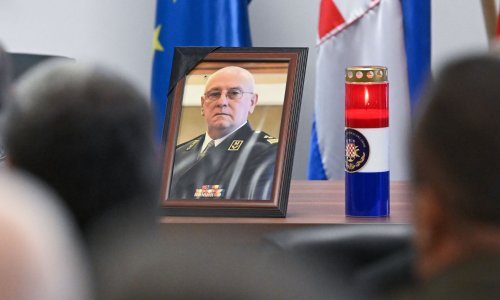The president of the Italian Chamber of Deputies, Gianfranco Fini, said in Zagreb on Tuesday he was pleased with a solution under which the esuli, regardless of citizenship, would be able to request the restitution of their property in Croatia that was confiscated after World War II.
Fini met Croatian Parliament Speaker Luka Bebic, who said in response to a question from an Italian reporter that the Croatian Supreme Court had upheld a decision under which restitution of said property could be requested by all who were not compensated by an earlier agreement, regardless of whether they had Croatian or another country's citizenship.
"I would like to underline the importance of this last sentence... regardless of citizenship. It's important that there's no difference and discrimination between Croatian and EU citizens," Fini told the press.
The esuli, Italians who left Croatia during and after WWII, is a long-standing open issue between Croatia and Italy, which Fini and Bebic described as close and with a lot in common.
Fini said the shared history of the Italian and Croatian peoples had sometimes been painful and tragic, but added that today there were common prospects.
"Those prospects are common to our politicians and were reaffirmed at the Trieste meeting of the Croatian, Italian and Slovenian presidents," Fini said referring to the July meeting of Ivo Josipovic of Croatia, Giorgio Napolitano of Italy and Danilo Tuerk of Slovenia, when they laid a wreath at the Monument to the Exodus, which symbolises the mass exodus of Italians from the Istria, Rijeka and Dalmatia regions on Croatia's coast.
Fini said Italy wanted Croatia to join the European Union as soon as possible. Bebic thanked him for advocating it as Italy's foreign minister when Croatia had opened the accession negotiations.
"The long process of Europe's unification won't end until the entire Balkans joins the EU. The first country which has invested the most effort is Croatia," he said.
Speaking of the position of the Italian minority in Croatia, Fini said the recent constitutional amendments had eliminated "some negative elements", and praised the fact that small minorities were given double voting rights.
"Italy will make sure that this be taken into consideration when it comes to Chapter 23," he said, referring to the "Judiciary and Fundamental Rights" policy area in Croatia's EU entry talks, one of the most important for their completion.




































